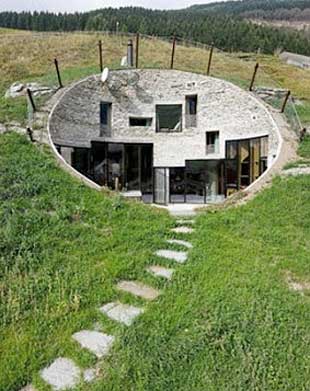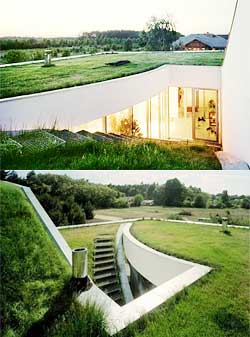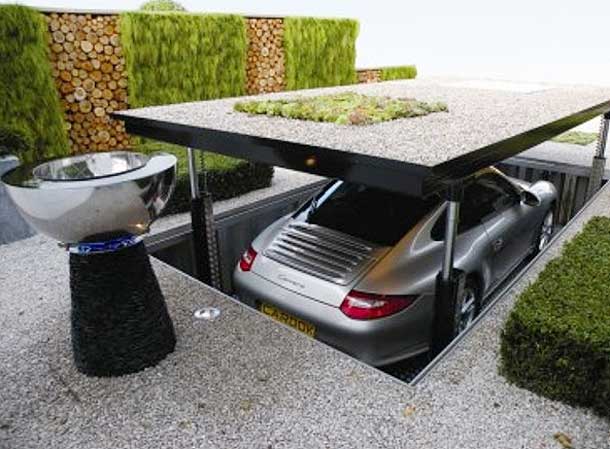Underground Homes
Gophers and Hobbits are not the only creatures who enjoy living
in underground homes. In the U. S. there are over 6,000 underground
homes built all across the country.
|
|
 Underground Home
Underground Home |
One of the main advantages of underground homes include that
these houses are built below the ground's surface level, are cooler
than conventional homes, and are resistant to natural disasters
like hurricanes, tornadoes, and other many others like them. But,
the number one feature of underground homes is the energy savings.
And if a person couples this feature with the solar panel system,
and then the person may be free from paying energy bills. Being
underground, these homes have quality of noise insulation which
makes them soundproof.
Patterns of Behavior ...
The builders of underground homes know how to construct these
dwellings in different styles according to the needs of the homeowners.
Some of the known patterns are caves, earth berm, rammed earth,
urban, shafts, tunnels and even abandoned underground nuclear
missile silos.
Nowadays, going underground has been getting popular among eco-friendly
people, who want to save the depleting resources of Mother Nature.
Underground homes also known as earth-sheltered homes, could be
built anywhere, whether near a hill, or on totally flat ground.
 Underground House
Underground House |
If one sees the magnificent underground
structures in Switzerland, Greek Isles, Stockholm and Australia,
they could not resist to say that these underground homes
are perfect blend of nature and architecture, fashion and
function.
|
Now coming to environment-friendly factor, then these homes are
in real terms friendly with Mother Nature. These houses blend
with nature, giving an impact that, they are part of the environment,
and save up to 60 to 70-percent on typical electrical bills. Add
a couple of solar panels or wind turbines above ground and the
utility companies may be paying you for your home-grown energy.
Another attraction of underground homes is security. Underground
homes are resistant to earthquakes, hurricanes, fires and even
intruders. Protecting one entrance of exit is a lot easier than
protecting several and most homeowners have to do.

One of the disadvantages of underground homes is moisture. This
can easily be addressed by an experienced builder, however, who
knows that ventilation and moisture control are key issues for
subsurface buildings.
Conclusion
As you can see, the advantages of underground homes far outweigh
the disadvantages in regard to lower utility bills, security,
sound-proofing and many other factors. So, why not say 'No' to
the big city boroughs and start burrowing instead, today?
|

